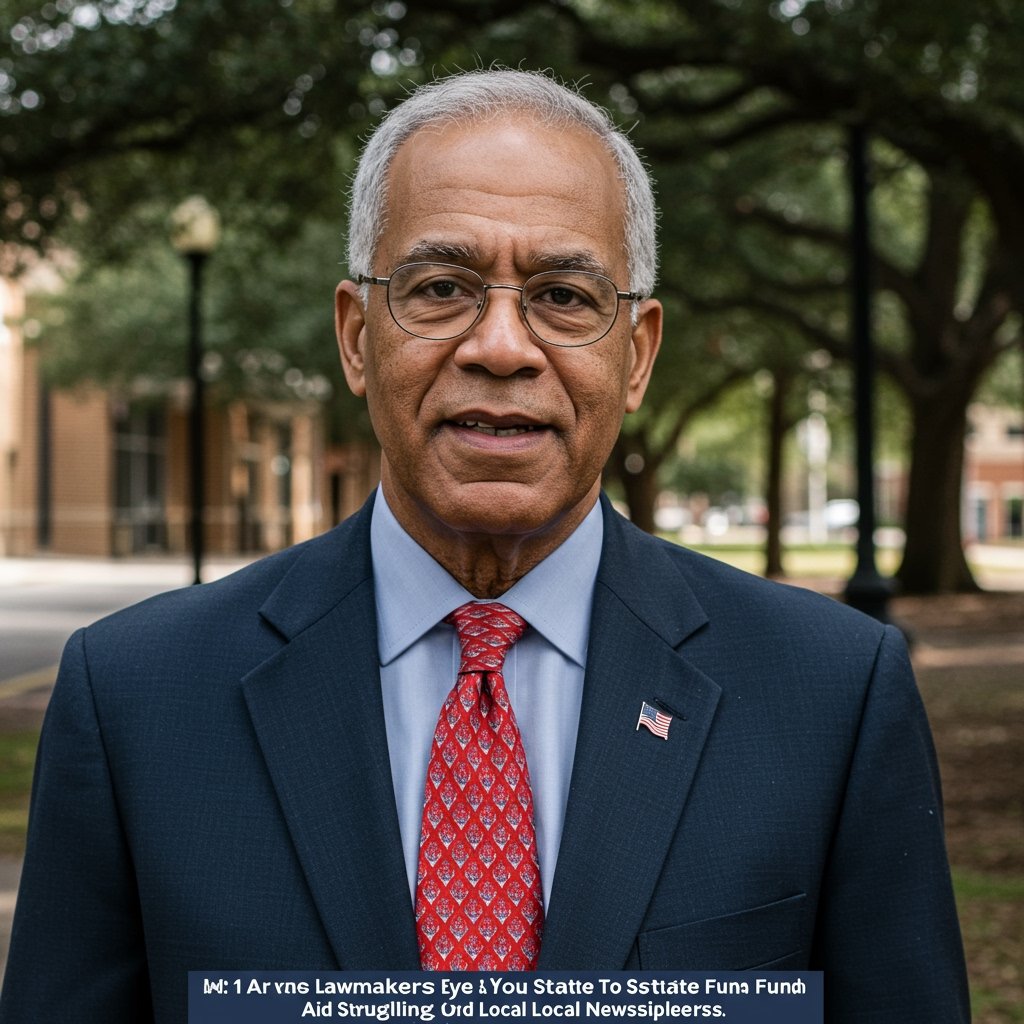Texas House Committee Schedules Key Hearings on Local Journalism Funding Bill
A pivotal legislative discussion concerning the future of local news in Texas is set to unfold as the Texas House Committee on State Affairs prepares to host public hearings on House Bill 451. This significant piece of legislation, sponsored by State Representative Eleanor Vance, a Republican representing Austin, proposes the establishment of a dedicated state fund aimed at supporting struggling local journalism outlets across the state.
The committee has officially scheduled public hearings for Tuesday, February 18th, 2025, and Thursday, February 20th, 2025. These dates mark critical junctures for stakeholders, concerned citizens, and the public to provide input and engage in a robust dialogue surrounding the proposed measure.
Understanding House Bill 451 and the Proposed Fund
HB 451 seeks to create a new state entity provisionally titled the “Texas Local Journalism Sustainability Fund”. The central tenet of the bill is to provide financial assistance, specifically in the form of grants, to local news organizations facing economic challenges. The legislation underscores a growing recognition among policymakers and the public alike regarding the vital role local journalism plays in civic engagement, government accountability, and community cohesion.
Supporters of HB 451 argue that the current economic landscape, characterized by declining advertising revenue, the shift to digital consumption, and the dominance of large tech platforms in content distribution, has severely impacted the financial viability of many local newspapers, radio stations, and digital news sites. This has led to news deserts, reduced coverage of local government and schools, and a less informed citizenry.
Proposed Funding Mechanisms
A key aspect of HB 451, and one that is expected to generate considerable discussion during the hearings, involves the proposed mechanisms for financing the “Texas Local Journalism Sustainability Fund”. The bill, as currently drafted, suggests two primary sources of revenue:
1. A portion of state advertising revenue: The state government currently spends a significant amount on advertising. The proposal suggests directing a percentage of this expenditure into the new fund, effectively using state marketing budgets to support the infrastructure that reports on state and local activities.
2. A potential fee on large tech platforms: The bill explores the possibility of levying a fee on large technology companies that benefit from the distribution of news content produced by local outlets. This approach, inspired by similar debates and legislation in other jurisdictions globally, aims to address perceived imbalances in the digital advertising market and compensate news creators for the use of their content.
These proposed funding sources are intended to provide a stable and dedicated stream of income for the fund, ensuring its capacity to offer meaningful grant support to eligible news organizations.
Anticipated Debate and Key Issues
The upcoming hearings are expected to be the forum for vigorous debate, highlighting various perspectives on HB 451. Several key issues are likely to dominate the discussions:
* The Need for Sustainable Local News: Proponents will emphasize the importance of a healthy local news ecosystem for democracy and community well-being. They will present data illustrating the challenges faced by outlets and argue that state intervention is necessary to prevent further decline.
* Concerns Over State Influence and Editorial Independence: Critics and some journalism advocates may raise concerns about the potential for state funding to compromise the editorial independence of news organizations. They will question how the fund would be administered to ensure grants are awarded based on need and merit, rather than political considerations, and how to prevent the state from wielding influence over content or coverage decisions. This is a critical ethical consideration for the journalism profession.
* Practicalities and Fairness of Funding Mechanisms: The specifics of how state ad revenue would be allocated and the structure and fairness of a potential tech platform fee will be closely scrutinized. Questions will likely arise about the sustainability and predictability of these revenue streams, as well as potential impacts on the tech industry and the broader economy.
* Defining Eligibility and Administration: Debate may also center on how the term “struggling local news outlets” will be defined, the criteria for grant eligibility, the application process, and the structure of the entity or board responsible for administering the fund and awarding grants. Transparency and accountability in the fund’s operations will be crucial.
Stakeholder Involvement and Testimony
The Texas House Committee on State Affairs will hear testimony from a range of stakeholders during the February hearings. Among the groups slated to testify is the Texas Press Association, a key organization representing newspapers across the state. Their testimony is anticipated to provide valuable insights into the challenges facing their members and their perspective on the proposed legislation. Other potential witnesses include representatives from digital news startups, journalism educators, community leaders, technology companies, and concerned citizens.
The hearings provide an essential opportunity for these groups to voice their support, opposition, or suggest amendments to the bill, shaping its potential path forward.
The Road Ahead
Following the public hearings on February 18th and 20th, 2025, the House Committee on State Affairs will deliberate on the testimony and potentially consider amendments to HB 451. If the bill receives a favorable vote from the committee, it would then move to the full Texas House of Representatives for further consideration and potential passage. The bill’s journey through the legislative process is likely to be closely watched by those concerned about the future of local news in the Lone Star State.
The proposed “Texas Local Journalism Sustainability Fund” represents a significant legislative attempt to address the economic crisis facing local news. The upcoming hearings are crucial steps in determining whether HB 451 can garner sufficient support and overcome the complex challenges associated with state-supported journalism initiatives while safeguarding the independence that is foundational to a free press.






